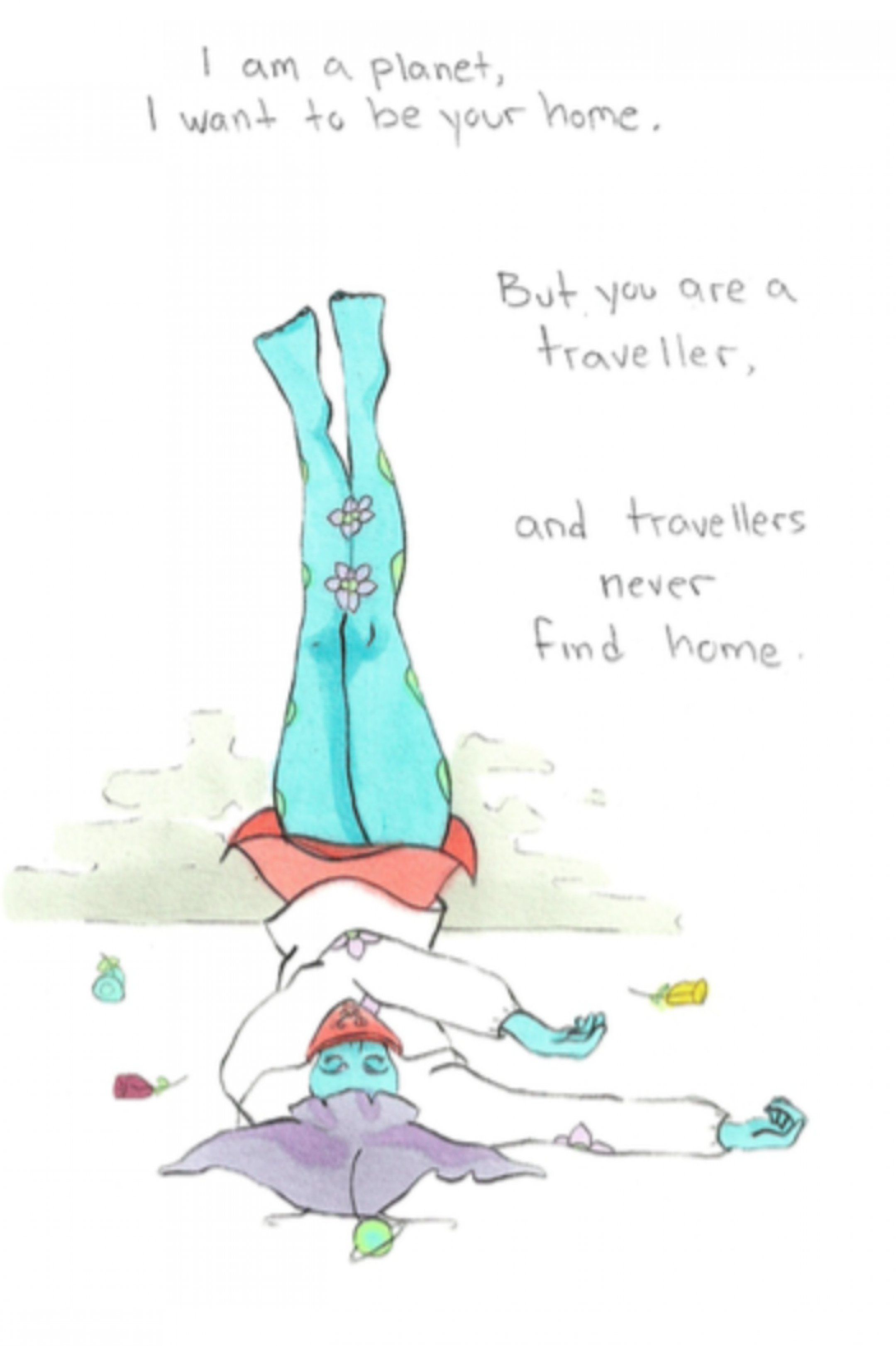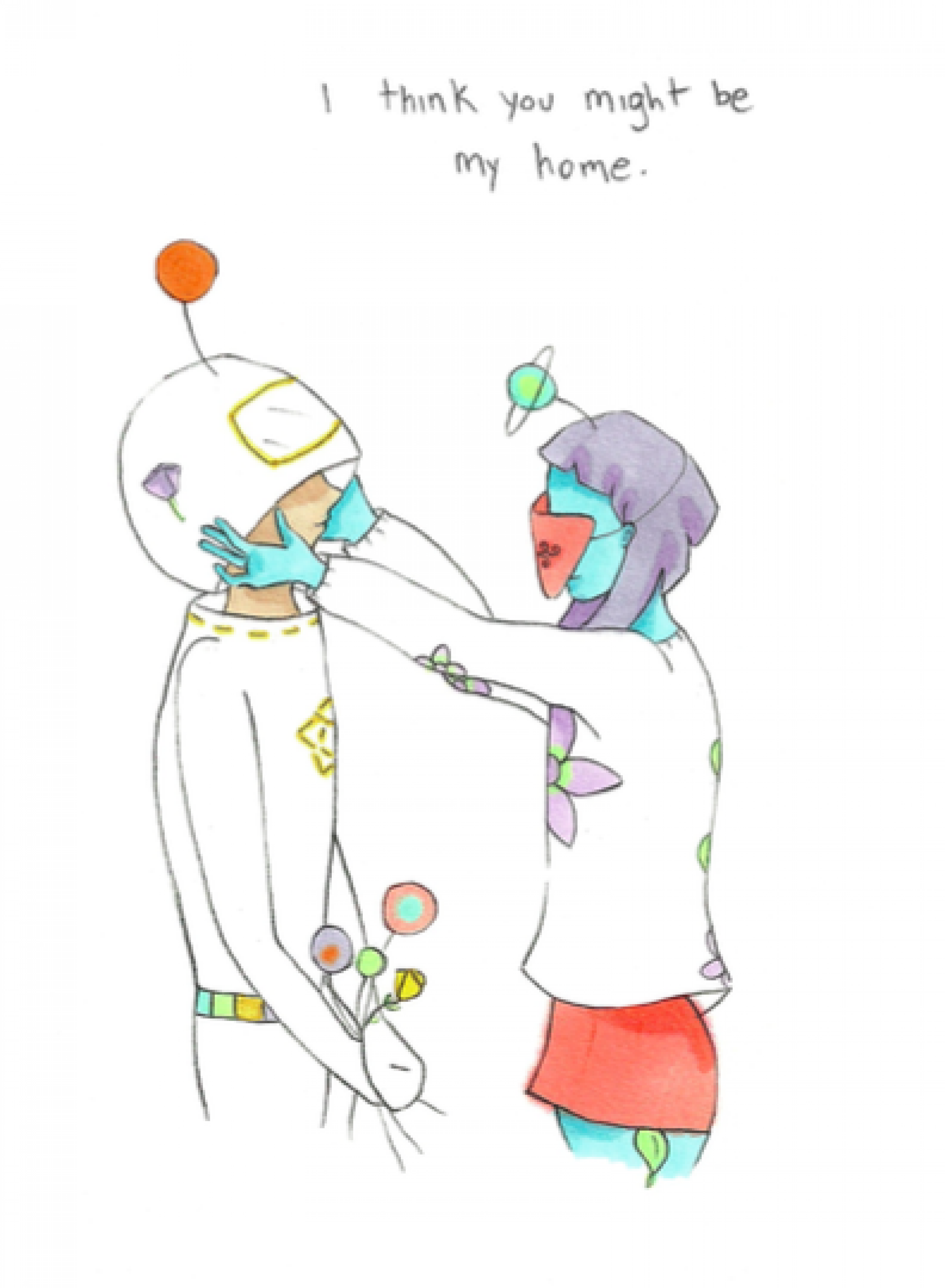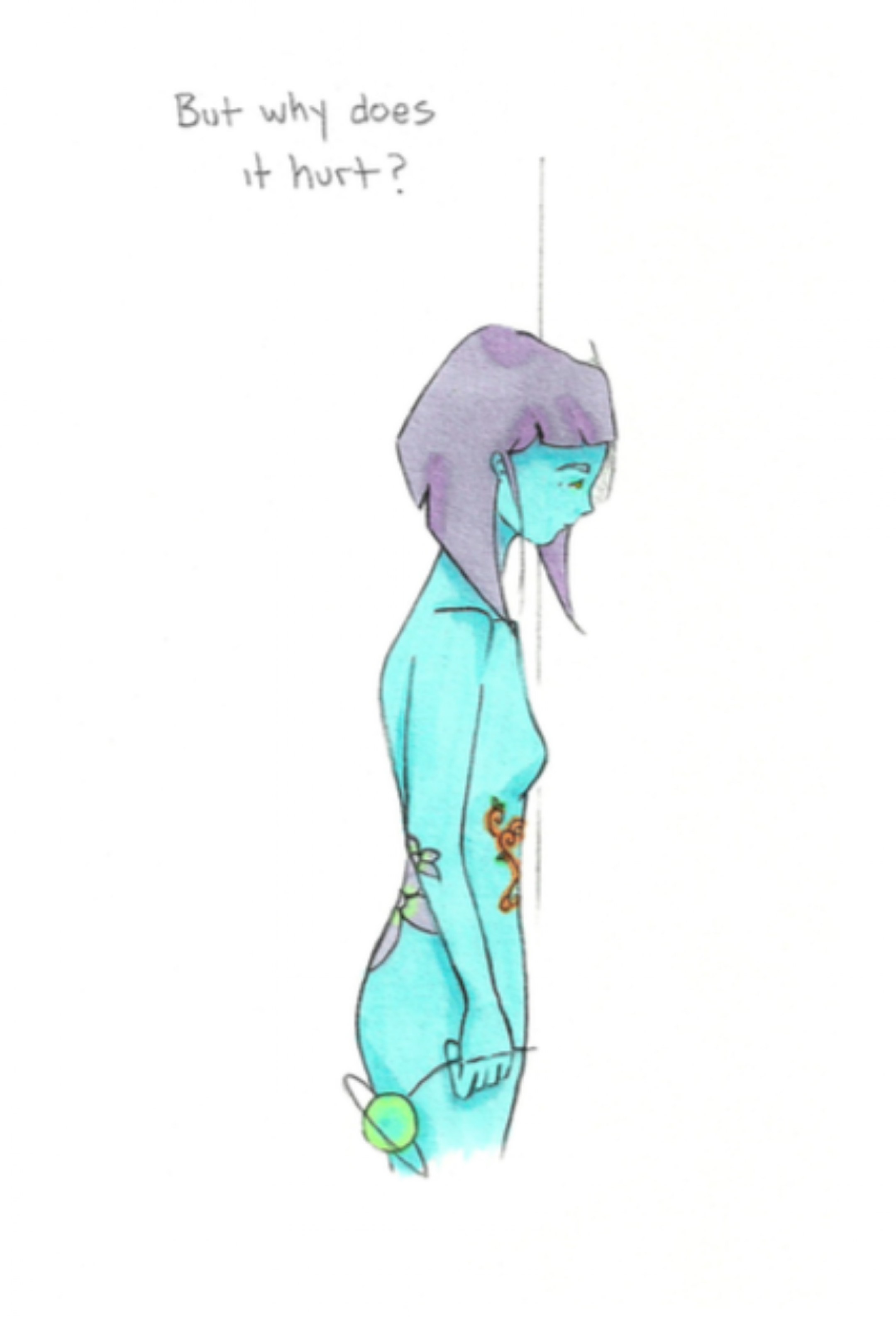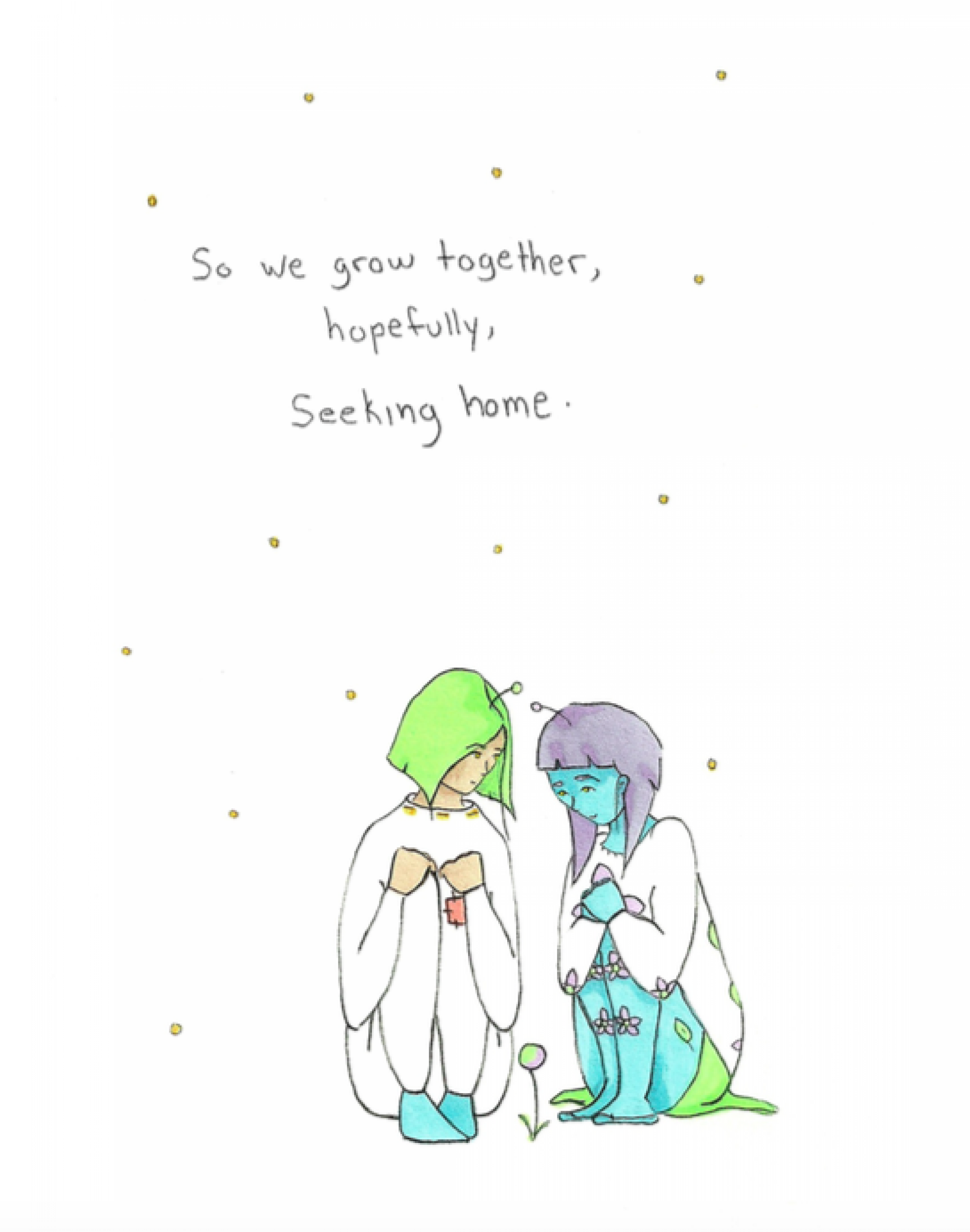A Day in My Life With Relationship OCD
Kirsty Turnbull outlines and illustrates the exhausting day-to-day of an ROCD sufferer.
Written by Kirsty Turnbull
01 This article was originally published on The Mighty on February 27th, 2017.
02 In it, Kirsty Turnbull walks you through the struggles and thoughts that sufferers of Relationship OCD experience.
03 Relationship OCD (rOCD) is a type of OCD that revolves around the fixation on the “rightness” of one’s relationship. It’s characterized by repetitive thoughts, ideas or impulses that are described as unwanted, intrusive and anxiety inducing.
04 If you or someone you know needs immediate help, call the National Suicide Prevention Lifeline at 1-800-273-8255 or text “START” to 741-741.
I wake up at 7:00 a.m. and my brain begins its morning routine: “Do I hate him? What if I hate him? Should I break up with him? What if I do? What if he leaves me? I don’t want him to leave. What if we’re not compatible enough? What if I don’t actually love him? What if he doesn’t love me? I love him. He doesn’t love me.”
A few words repeat for some time. “Hate, hate, hate, hate, hate.” “Breakup, breakup, breakup, breakup, breakup.” I try to tune out the thoughts with the sound of water from the shower.
I feel shaky. The front of my head is hot. There’s a layer of fog around me deafening sounds and blurring my vision. There’s pressure in my brain.
I get on the bus and go to work.
I sit at my desk and open my work. I open Facebook and think of messaging him. “Should I say good morning? Maybe if I message too often I’ll seem clingy. I don’t want to distract him if he’s busy. If I’m annoying he won’t like me and he’ll leave. But my partner shouldn’t be bothered by my messages, that means he doesn’t actually like me. I shouldn’t be with someone who’s annoyed so easily. If he loved me he wouldn’t care how often I messaged. He doesn’t love me.” I’m now angry at my partner, and at myself for being angry over a fictional situation (I’m wondering if it’s fictional). My face is burning, my head feels like it’s full of sand. A co-worker wishes me a good morning, and I reply with a smile and pleasant tone of voice. It was difficult to hear him over the sound of my own thoughts.

It’s lunch time now and I go for a walk. I blast music through my headphones in an attempt to drown my thoughts. Angel Haze, Purity Ring. Grimes. They bring me some temporary peace. I’m exhausted, so I lay down near a tree. I try to meditate and let my thoughts wash over me, unbothered. Sometimes this works, sometimes it doesn’t. Today it doesn’t. I go back to work.
I chat with my partner for a while over messenger. He makes me smile. We talk about how we’re feeling. I don’t go into detail, I say that I’m feeling a bit unwell but that overall I’m having a decent day. We discuss plans for the weekend. He tells me about some TV shows and movies he thinks I’d be interested in, and I share a short film with him by a director that he mentions. He shares a brief analysis of it. We exchange sappy emoticons. I feel temporarily elated. I try my best to finish the work day without letting my thoughts spiral out. The busier the day, the better. I get up and take a walk around without an objective just to get my body moving to help stave off the
anxiety. I start thinking about last week, how he didn’t want to watch a TV show that I like. I think, “But this show resonates with me, how could he not want to watch it? How will he ever understand me if he doesn’t watch this show? He doesn’t care if he understands me or not. He doesn’t care about me. Why doesn’t he care about me? Why I do I love someone who doesn’t care about me?” I’m angry again (at him and me, again). I go to the washroom to hyperventilate and cry. When I return to my desk a co-worker asks if I’m OK. I tell them I sneezed five times on my way back from the washroom. We share a laugh.

I head home.
I make a simple dinner of rice and frozen dumplings and praise myself for preparing a meal. I send him a message before I begin eating, and check for a reply when I’m done. He doesn’t reply. I’m scared. “He hates you.” I try to calm myself down, telling myself that that it’s OK, it’s not true. “How do you know?” My brain replies to my calming mantra. I can’t answer. I begin to shake. “You hate him.” I shake more. I decide to distract myself. YouTube. I look for movie trailers on YouTube. I watch the trailer for “La La Land” and think it looks decent. I wonder if my partner would like it. In that moment, I realize that I don’t know if I like it anymore. What if he hates it? What if he hates what I like? What if this means we’re not compatible enough? Suddenly, his opinion of this trailer, which I only kind of liked, is more important than anything. I begin to hyperventilate and my chest hurts. The room spins and my vision blurs. I can’t breathe. I’m having a panic attack.
It passes.
I check my messages and he replied. I smile.
Relationship OCD (rOCD) is a type of OCD that revolves around the fixation on the “rightness” of one’s relationship. It’s characterized by repetitive thoughts, ideas or impulses that are described as unwanted, intrusive and anxiety inducing. ROCD is invisible to the naked eye, as all of the “checking” and repetitive behaviors associated with OCD occur mentally. ROCD is rooted in doubt about one’s own feelings for their partner, their partner’s feelings for them and whether the relationship is the “right” one.

In the last eight months, I’ve gone from daily crippling feelings of guilt, shame, panic and suicidal ideation to an enjoyable life.
I saw a doctor who I’m forever appreciative of. She examined my thoughts as well as my physical health. She let me speak freely. I stopped feeling so ashamed of what I was experiencing. I discovered that my iron was low and began taking supplements, relieving some fatigue and improving my mood. I began taking an SSRI, which (after two awful weeks of side effects) relieved the pressure in my brain and helped me create more positive thought patterns. I started journaling regularly as an outlet for my thoughts. The interesting thing about writing thoughts down is that it allows you to step back and decide if you agree with those thoughts. The world in an OCD mind is confusing and misleading. When you remove the thoughts from your mind and put them to paper, suddenly they transform from all-consuming to small.
I also started to write and draw, and that’s how I created
Homebound. The story is a reflection of my journey from feeling like an inherently bad person, terrified of uncertainty and consumed by doubt, to finding equanimity in uncertainty, and learning that I am not my thoughts. While Homebound marks a turning point for me, the journey isn’t complete. I still battle daily with my OCD, but it no longer controls me. I recognize it, I see it for what it is. I’m not afraid of it. I also recognize that I have certain privileges that made my recovery easier than what others will face. I had money saved from working, a family I could fall back on when I was too ill to continue working and friends and a partner to lean on in moments of panic. To those who face more difficult circumstances than me, I’m not going to pretend I know what you’re experiencing. But I can tell you that it’s possible to come back from wanting to die to truly living, not just surviving. If you have OCD in any form and you’re still alive, you’re strong as hell, and I believe in you.

You can find Homebound at my online shop along with prints and miscellaneous merchandise reflecting my mental health and relationship journeys.To read this article on The Mighty, head here, and for additional OCD resources, check out The Mighty's OCD page.
Support our work
We’re on a mission to change how the world perceives mental health.



















